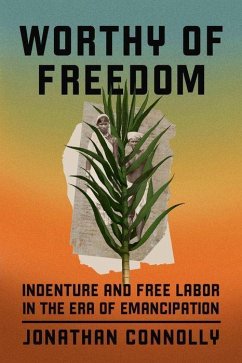"In this book, historian Jonathan Connolly traces the normalization of indenture from its controversial beginnings to its widespread adoption across the British Empire in the 1860s. Initially, indenture caused scandal and was viewed as a covert revival of slavery. But soon enough, a changing economic landscape in the colonies altered how it was perceived, and it was increasingly viewed as a legitimate form of free labor and a means of preserving the promise of abolition. Connolly explains how, over time, the large-scale, state-sponsored migration of Indian subjects to work in sugar plantations across Mauritius, British Guiana, and Trinidad was justified as a supposed force for progress. Excavating legal and public debates and tracing practical applications of the law, Connolly carefully reconstructs how the categories of free and unfree labor were made and remade to suit the interests of capital and empire, showing that emancipation was not simply a triumphal event but, rather, a deeply contested process. In so doing, he advances an original interpretation of how indenture changed the meaning of "freedom" in a post-abolition world"--








